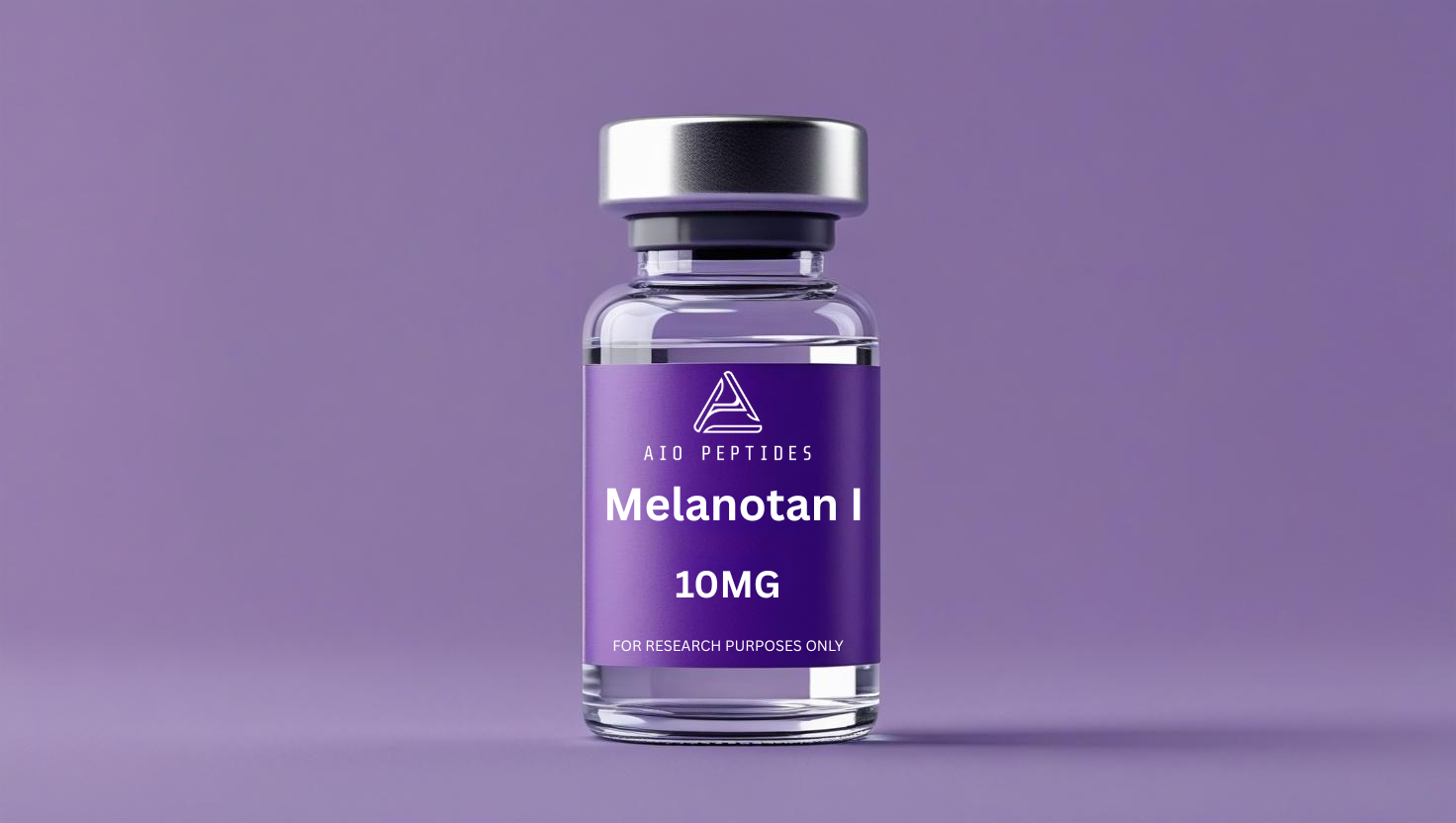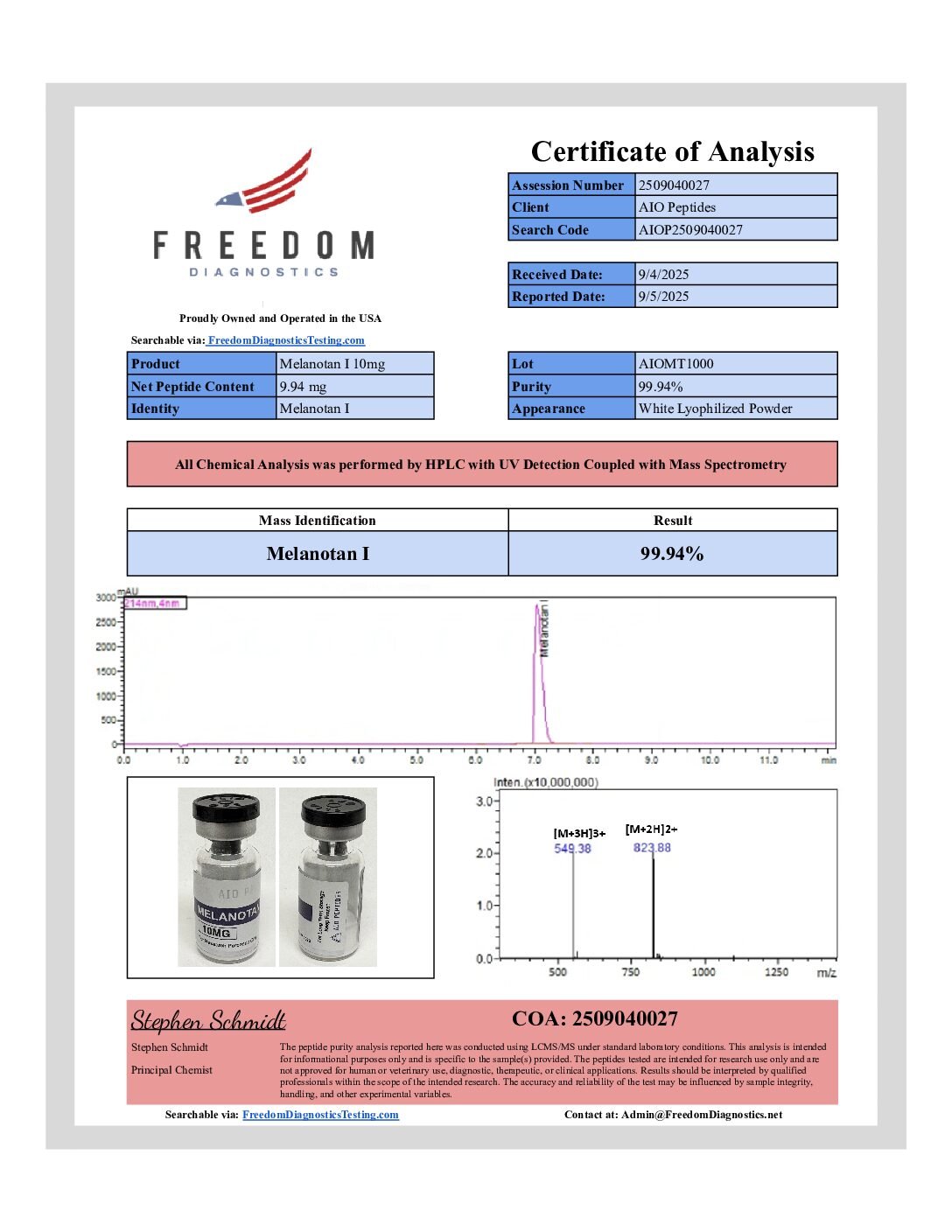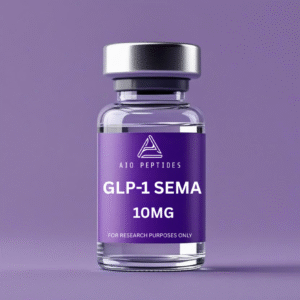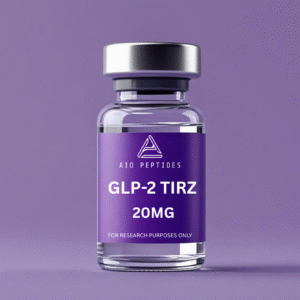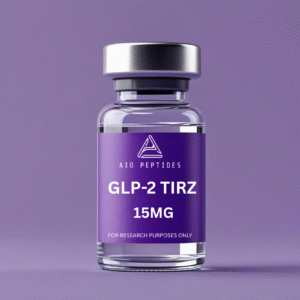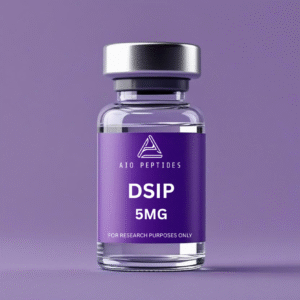Key Research Areas:
- Pigmentation & Photoprotection
Acts as a potent MC1R agonist, stimulating eumelanin production in the skin. Increased pigmentation provides protection against UV-induced DNA damage, reducing sunburn risk and supporting long-term skin health. - Erythropoietic Protoporphyria (EPP) & Photodermatoses
Clinically approved in some regions for preventing phototoxicity in EPP, significantly improving patient quality of life. Research is expanding into other light-sensitive skin conditions such as polymorphic light eruption (PLE). - Vitiligo & Pigmentary Disorders
Explored for its ability to stimulate repigmentation in vitiligo patients, especially in combination with narrowband UVB therapy. Potential applications extend to other pigmentary conditions involving melanocyte dysfunction. - Skin Cancer Prevention
By enhancing natural melanin defense, Melanotan 1 may lower cumulative UV damage and reduce the risk of melanoma and non-melanoma skin cancers. Preclinical data supports a protective effect in high-risk populations. - Anti-Inflammatory & Immunomodulatory Effects
Beyond pigmentation, α-MSH analogs including Melanotan 1 demonstrate anti-inflammatory properties, modulating cytokine activity and immune cell responses, with potential applications in systemic inflammatory conditions. - Wound Healing & Dermatological Repair
Early studies suggest melanocortin pathway activation supports tissue regeneration, angiogenesis, and reduced scarring, positioning Melanotan 1 as a candidate for wound healing research. - Neurological & Systemic Applications
Preliminary research indicates melanocortin receptor signaling may play roles in neuroprotection, appetite regulation, and energy balance, suggesting potential systemic benefits beyond dermatology.
- Product Care and Storage – All products are shipped using the Lyophilization process, which ensures that products remain stable for shipping for up to 3-4 months. Products must be reconstituted to a liquid, by mixing with bacteriostatic water for research and testing.
- Lyophilized or powder form – Store in cool, dry place away from light; can be stored at room temperature. Remains stable for several weeks or more.
For long term storage (months to years) freezing is optimal to preserve stability and maintain integrity. - Reconstituted form – Refrigerate under 39F; peptides will remain stable for up to 30 days.
- Usage – We are unable to provide any dosing instructions, however all products should be considered pharmaceutical grade.
- Disclaimer – This product is for research use only and is not intended for human consumption, diagnostic use, or clinical treatment. Proper laboratory safety protocols should always be followed when handling peptides.

